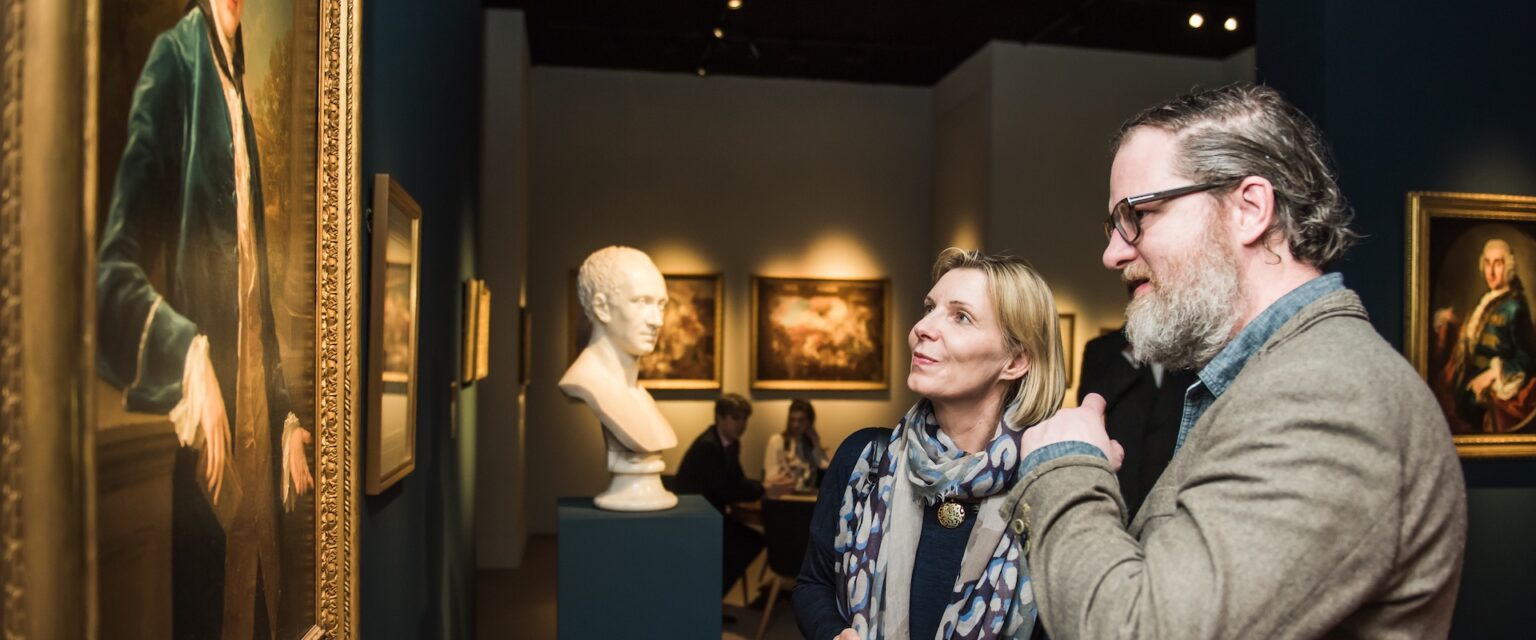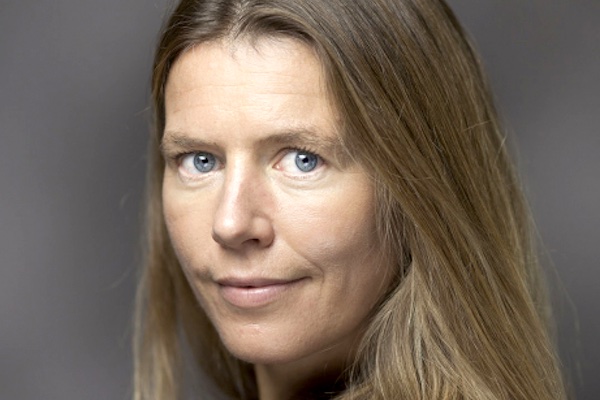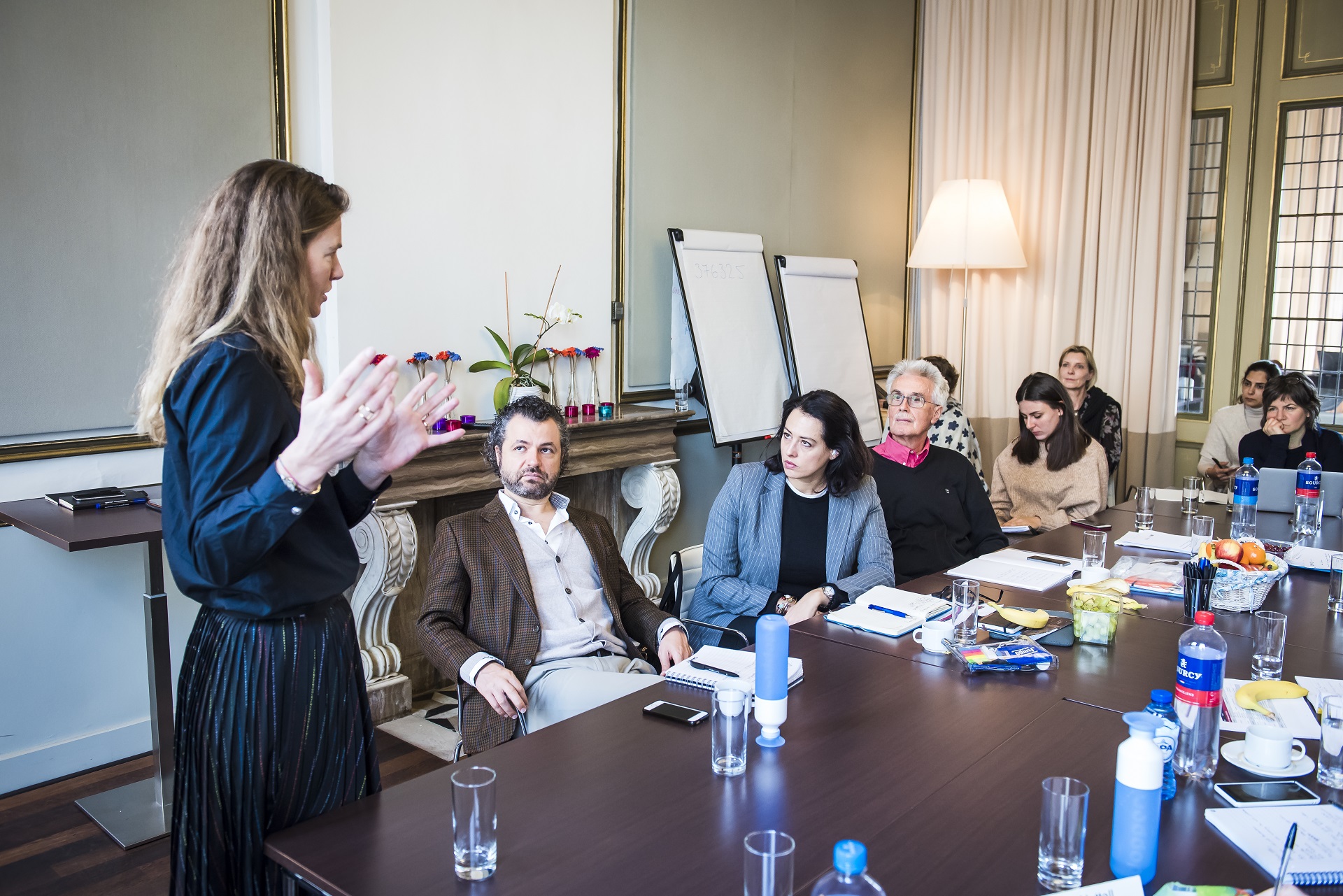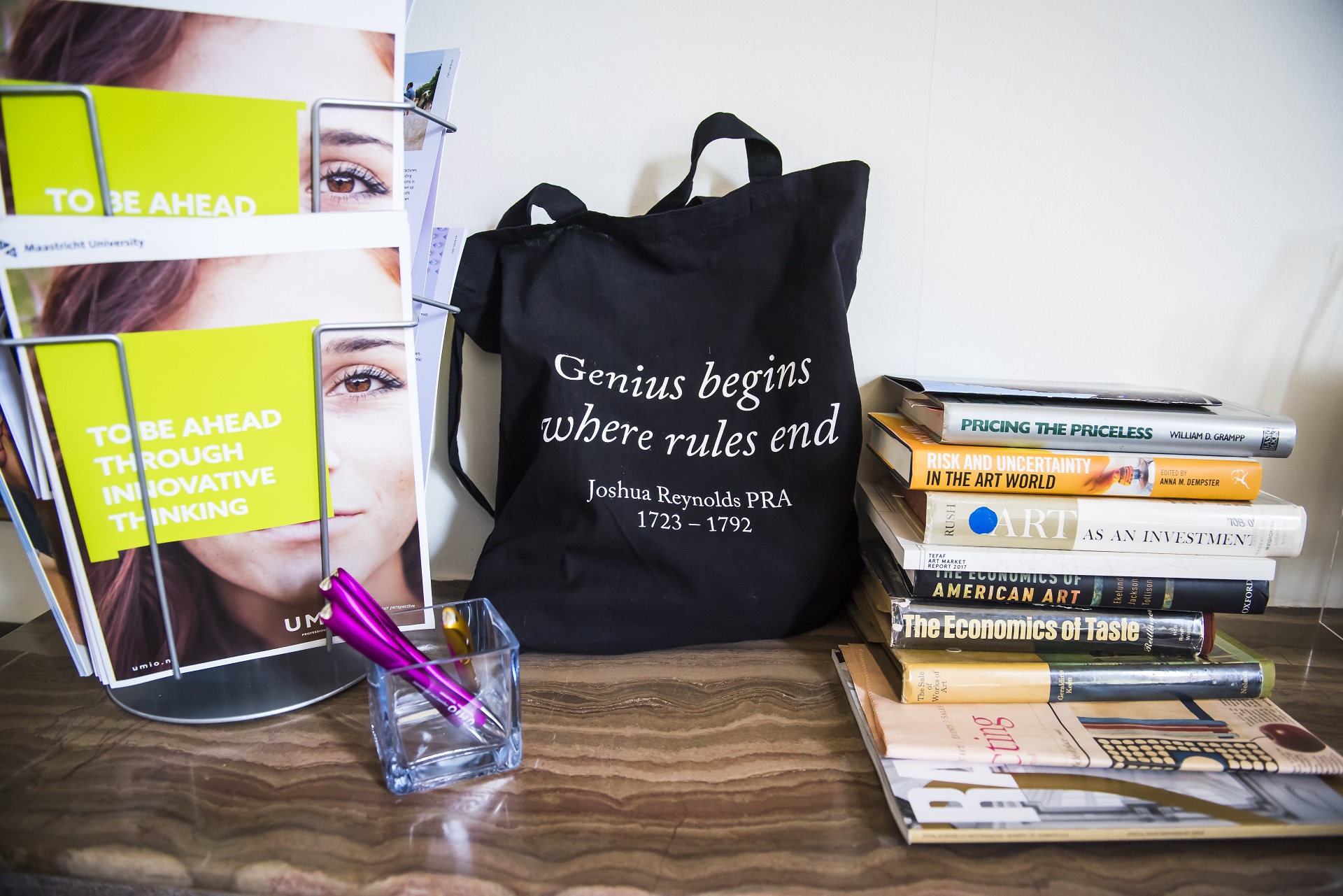Developed in collaboration with London’s Royal Academy of the Arts, this unique programme brings together academic rigor and practical expertise in the art world to foster executives who can bring a rich understanding of innovation, creativity, and business leadership to organisations within and beyond the cultural sector.
What is the Executive Master in Cultural Leadership?
The EMCL is a two-year masters programme designed for applicants who wish to gain a Master of Arts qualification without pausing full-time work. Developed by Maastricht University and the Royal Academy of Arts in London in 2017, it is a unique international course delivered by Maastricht University tailored to the needs of executives who want to develop their business and leadership skills in parallel with deep knowledge of cultural industries.
Delivered over two years through a programme of high-intensity modules taught in Maastricht, London, and other locations, the EMCL is designed for applicants both in and outside of the cultural sector who want to learn how to bring the insights of business to art and the insights of art to business. With small cohorts of experienced professionals from a wide range of backgrounds, it responds directly to students’ knowledge and needs to educate inspirational leaders with a rich understanding of creative processes and organisational innovation.
What can you do with the Executive Master in Cultural Leadership?
By completing all courses as well as assessed components and coursework, you will graduate with a Master of Arts from the University of Maastricht. More than this, the EMCL is a programme designed to create professional inspiration and offer opportunities for building a network that can take you to the next level in your career.
The EMCL offers access to a professional network like no other. Through the course, our alumni have met academics, scholars and art world practitioners, discovered inspirational organisations they want to work for, and gained the knowledge and courage to set up their own businesses. Just as importantly, they have found a new peer group of like-minded professionals looking to expand their own horizons.
Such opportunities are at the heart of our approach. This is a course designed to create a growing international network of cultural leaders who will collaborate long after graduation – leaders with the knowledge and insights needed to face the challenges of our turbulent times.





